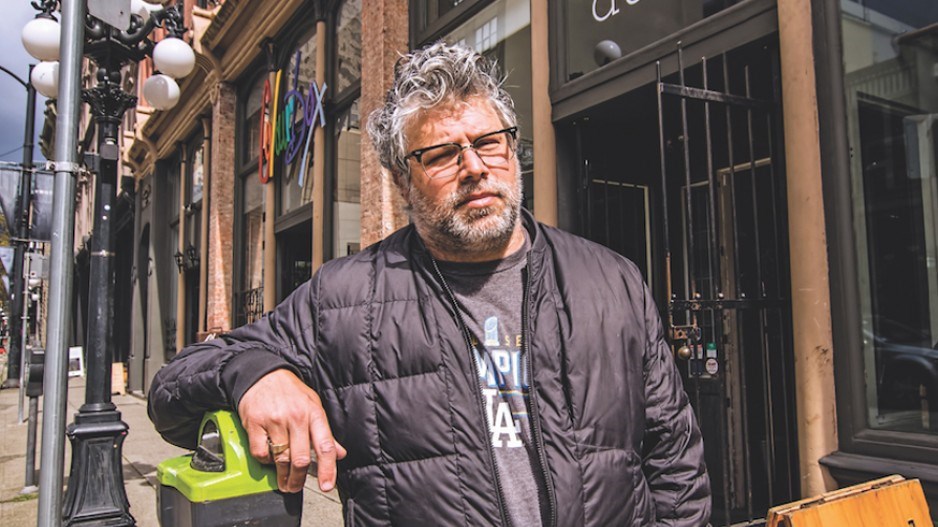For Gastown’s Dutil Denim, business is still not quite back to where it was before the start of the COVID-19 pandemic more than two years ago, and now the designer denim-clothing retailer faces a host of other challenges.
In March 2020, Dutil Denim was forced to shut down for about three months due to pandemic restrictions, and when it reopened, in-store commerce was slow to come back. Sales were about 30 per cent to 60 per cent down compared with 2020 pre-pandemic levels. But the Gastown store at least fared better than Dutil Denim’s locations in Calgary and Toronto, which implemented more draconian measures than B.C. did.
“We were closed a year in Toronto,” said Dutil Denim owner Eric Dickstein. “Calgary was also closed quite a bit.”
The company’s first store opened in Gastown in 2006. The retailer sells designer jeans – mostly other brands, though it does also sell some of its own designs.
“Right now, predominantly we sell other people’s brands, but we’re moving toward making more of our own stuff,” Dickstein said. “Our goal in the next 18 months is to shift more into a vertical integration because retail is increasingly becoming more and more difficult.”
Border closures and the loss of cruise ship traffic had a significant impact on shops in the Gastown district. Government loans and wage subsidies helped keep the business afloat, as did online sales. But online sales are no substitute for in-person shopping.
“The problem with online sales is that there’s so much erosion of margin because of free shipping,” Dickstein said.
Now that the pandemic is entering its endemic stage, another kind of epidemic is plaguing shops in Gastown: the opioid crisis, and all the vagrancy, crime and violence that goes with it.
“The streets are very, very sketchy now,” Dickstein said. “I think one of the biggest challenges in Gastown right now is the violence that’s going on. I probably spent $12,000 in Gastown on vandalism, people trying to break into the store. That had always been a thing, but it was worse during COVID.
“The theft, the violent crimes increased. These are all things that are not attractive for people to come into the city. So even locals are a little scared to sometimes to come into the city because it has changed. COVID has changed the way the city actually looks.”
Another challenge for small businesses in Vancouver is high taxes and over-regulation. For Dickstein, the latest irritant is the City of Vancouver’s ban on single-use plastics. As part of the ban, shop owners are obliged to charge their customers for reusable bags. Dutil Denim offers customers reusable cotton bags, and Dickstein said he would prefer to give them to customers for free. But city bylaws require him to charge his customers for the bags.
“The city is making retailers charge for bags now,” Dickstein said. “When I have … a client whose spending $1,000 on a pair of glasses or jeans, that – as a retailer – I cannot give a gift to my client is extremely offensive, especially when that is not the biggest problem in the city.
“It is ridiculous that there are so many issues going on in the city, and that is the thing that they want to dig their heels into – when they’ve got a mental illness crisis, they’ve got homelessness. You have to prioritize problems. And I can promise you, the coffee cup and the charging for bags is not our biggest problem in Vancouver.” •




